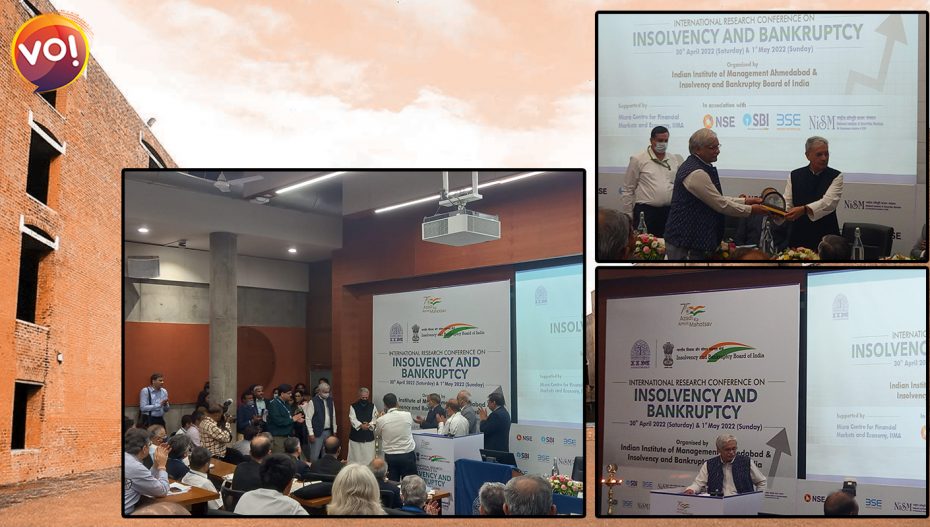India’s premier management institute, IIM-Ahmedabad, in collaboration with Insolvency and Bankruptcy Board of India (IBBI) jointly hosted the first-ever International conference on insolvency and bankruptcy, Saturday. The event served as an inaugural session to the two-day meet at the IIM(A) campus. The conference will have over 40 scholars of economics, law, finance, banking and management present papers on issues in the Insolvency domain.
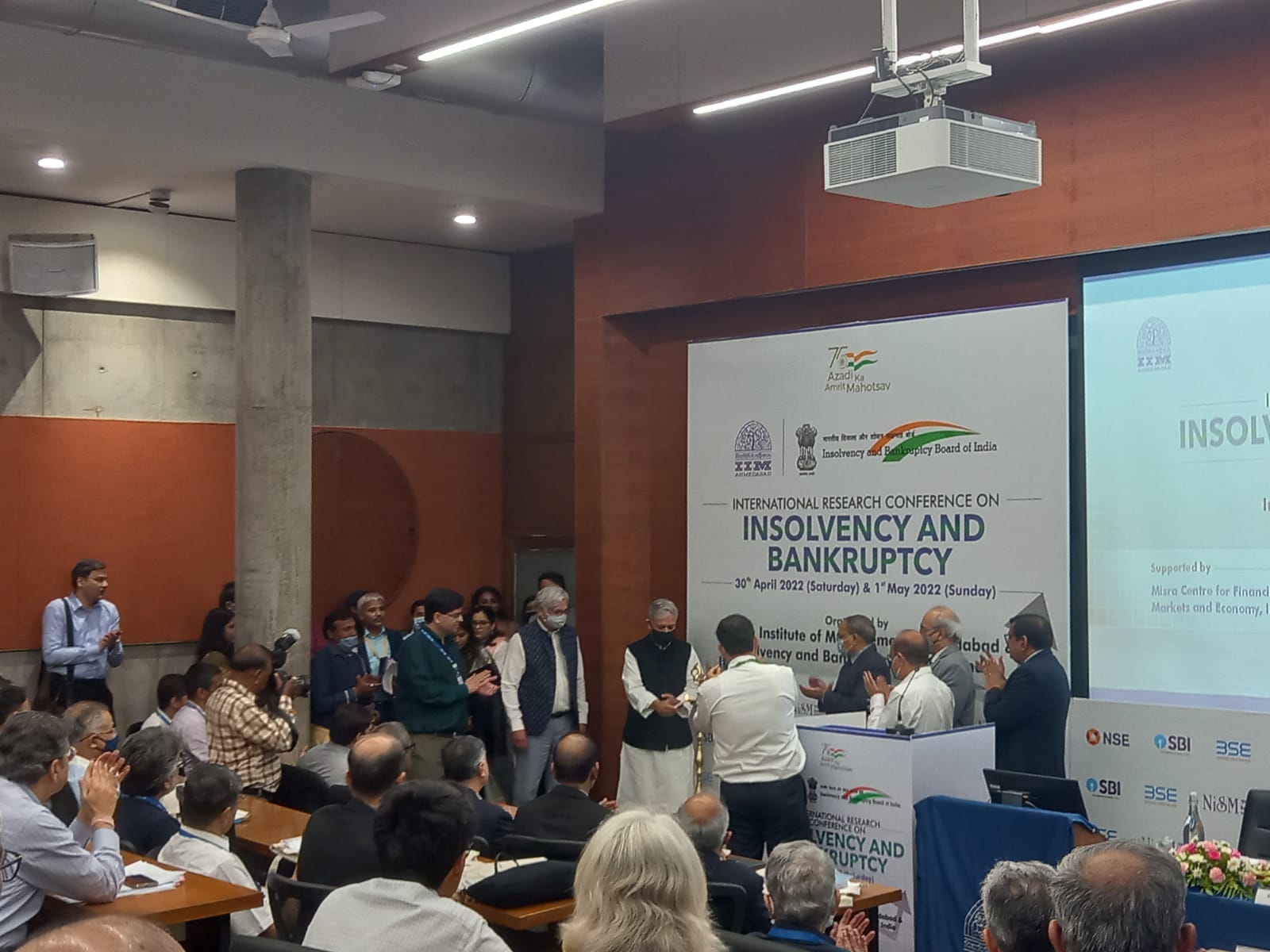
The forum was inaugurated by Rao Inderjit Singh, MoS, Corporate Affairs. Among the other dignitaries present were M. Rajeshwar Rao (Deputy Governor, RBI), Rajesh Verma (Secretary, GoI), Ravi Mittal (Chairperson- IBBI) and Prof Errol D’Souza (Director, IIM-A). The credit for convening the meet goes to IIM-A faculty members, Prof Abhiman Das and Prof M.P Ram Mohan.
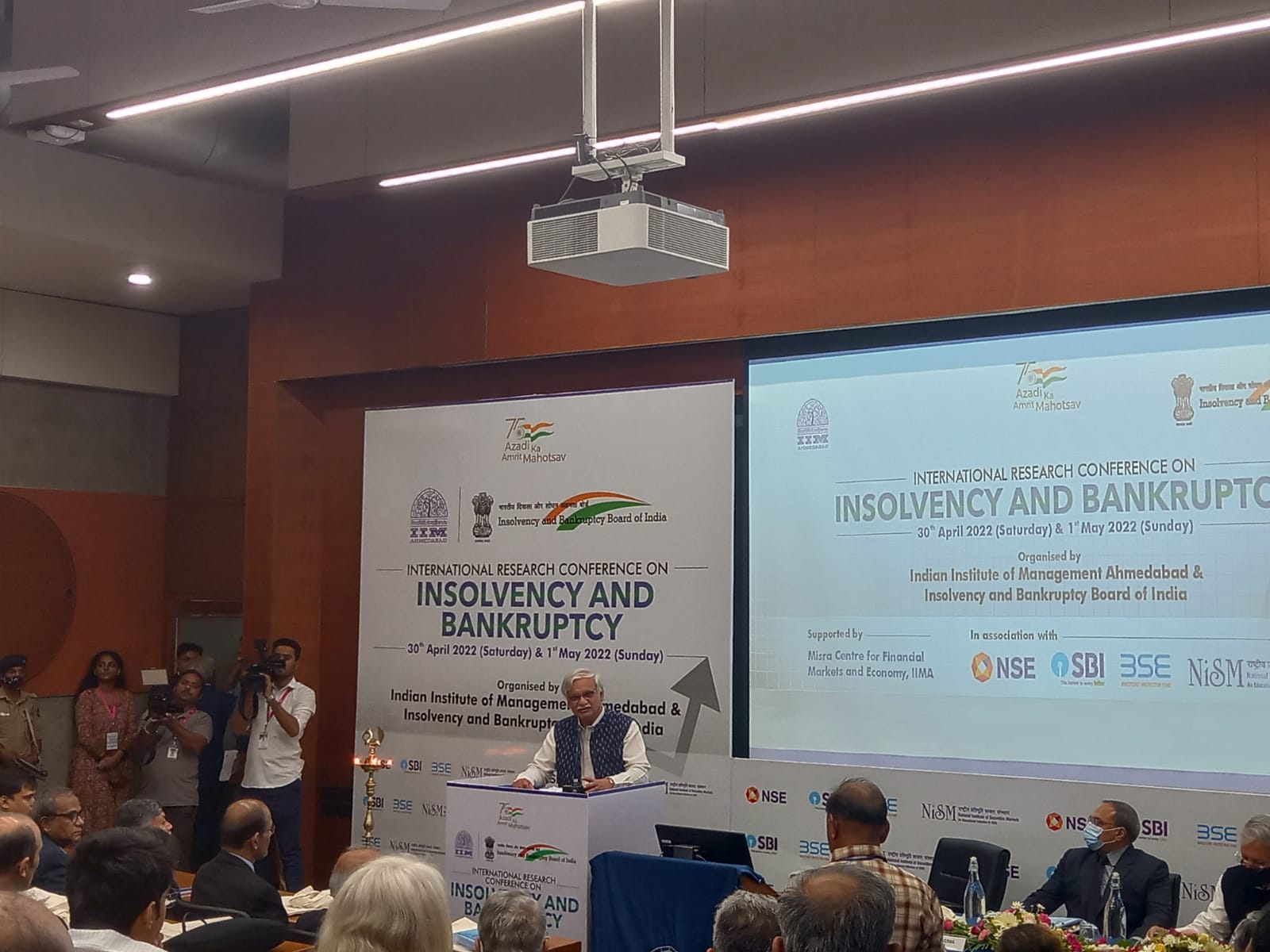
Sharing his views on bankruptcy proceedings being of crucial importance, Prof D’Souza stated: “It is important that shareholders are provided a fair distribution value at the end of such cases. In India, we stand guilty of falling into the Type 1 error. This means, we push towards liquidation, which is wrong. In countries like the USA, Type 2 error is committed which is to recognise the bankruptcy and thereon, to liquidate.”
He highlighted that the spotlight needs to address snarls and pitfalls on the demand end instead of assessing shortfalls on the supply side.
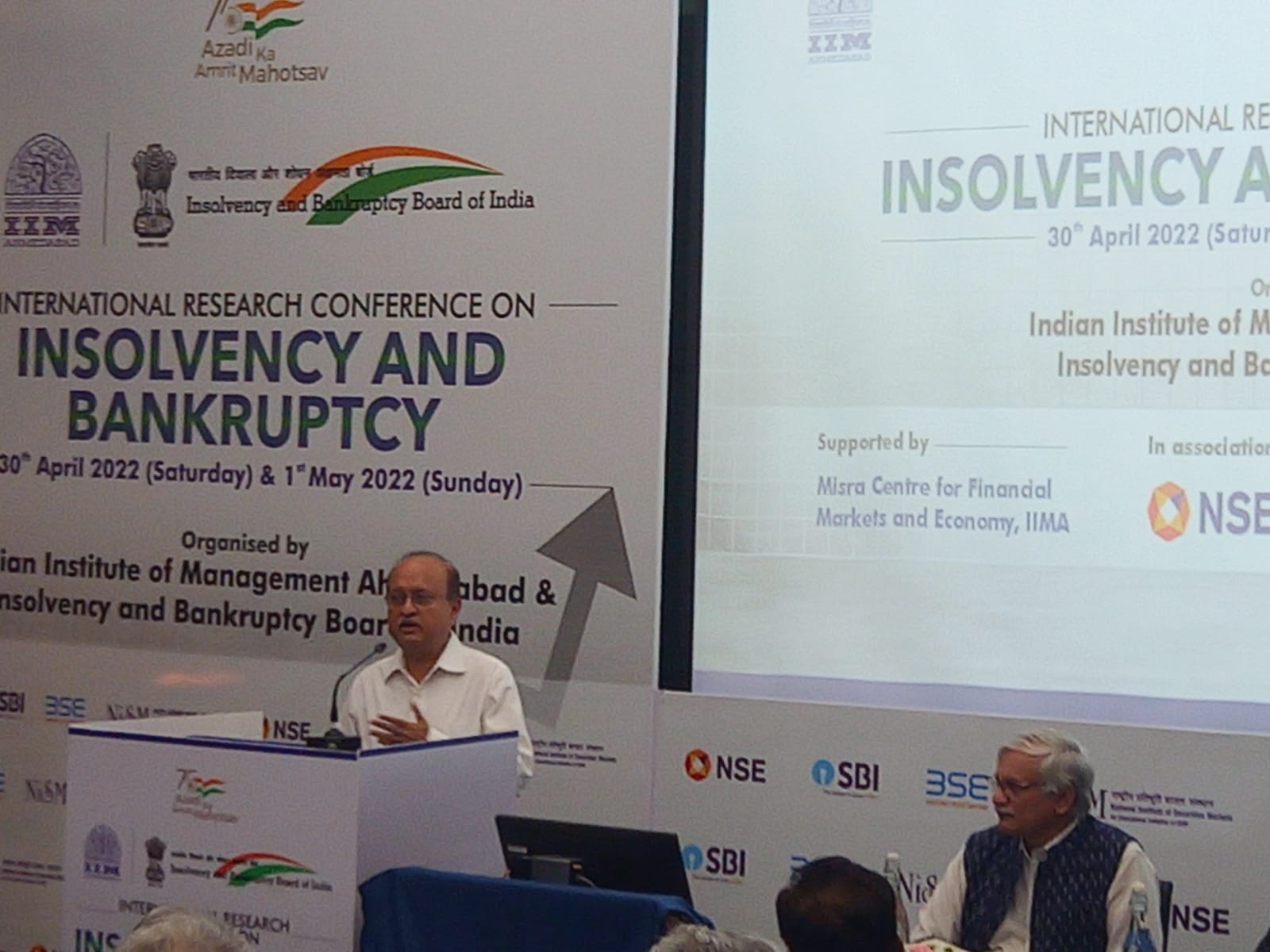
Echoing his views, chairperson, IBBI, Ravi Mittal added: “There is dire need for an evidence-based process. Currently, we follow a prescribed time frame for the IBC process. This is challenging given that in the first year itself, the value of an asset depreciates 30 percent. In some cases, by the time the IBC intervention is sought, the value further goes down. We hope the scholars gathered here can formulate guidelines for perseverance of a project, instead of ways to address liquidation.”
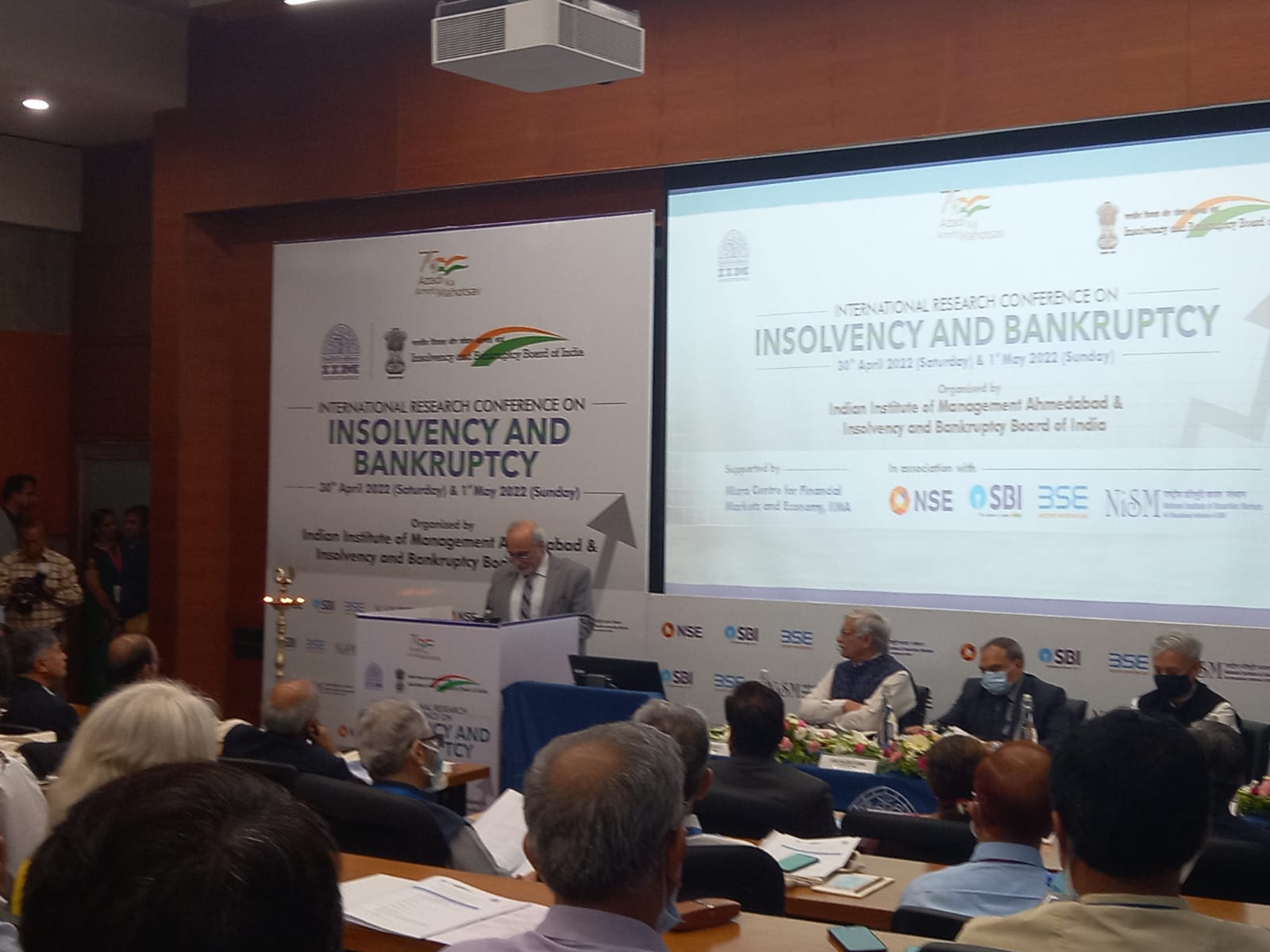
In his keynote address, M. Rajeshwar Rao hailed the efforts of RBI in dealing with insolvency resolution. He hoped that the meet would charter rules to facilitate time-bound resolution, focus on majority shareholders and to incentivise creditors to come up with solutions.
“Since 2016, nearly six changes have been adopted by the IBC and this is proof that the government is actively trying to bolster industrial growth,” added secretary, GoI, Rajesh Verma.
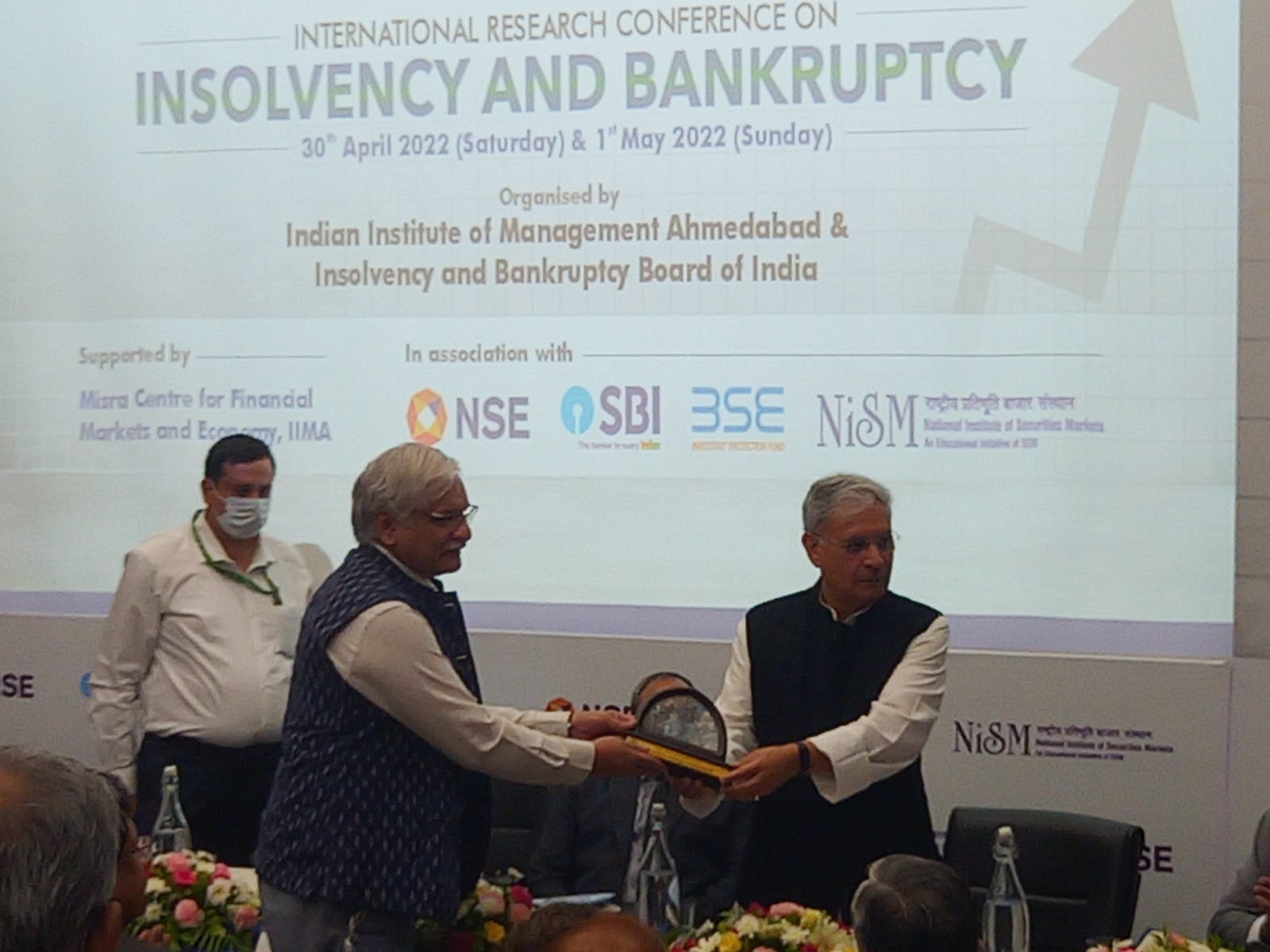
For his part, Inderjit Singh, MoS, Corporate Affairs, noted the importance of budding entrepreneurs, start-up ecosystems and a conducive business environment created with the help of IBC. “New challenges will keep emerging and we hope that this research can troubleshoot some areas of concern.”
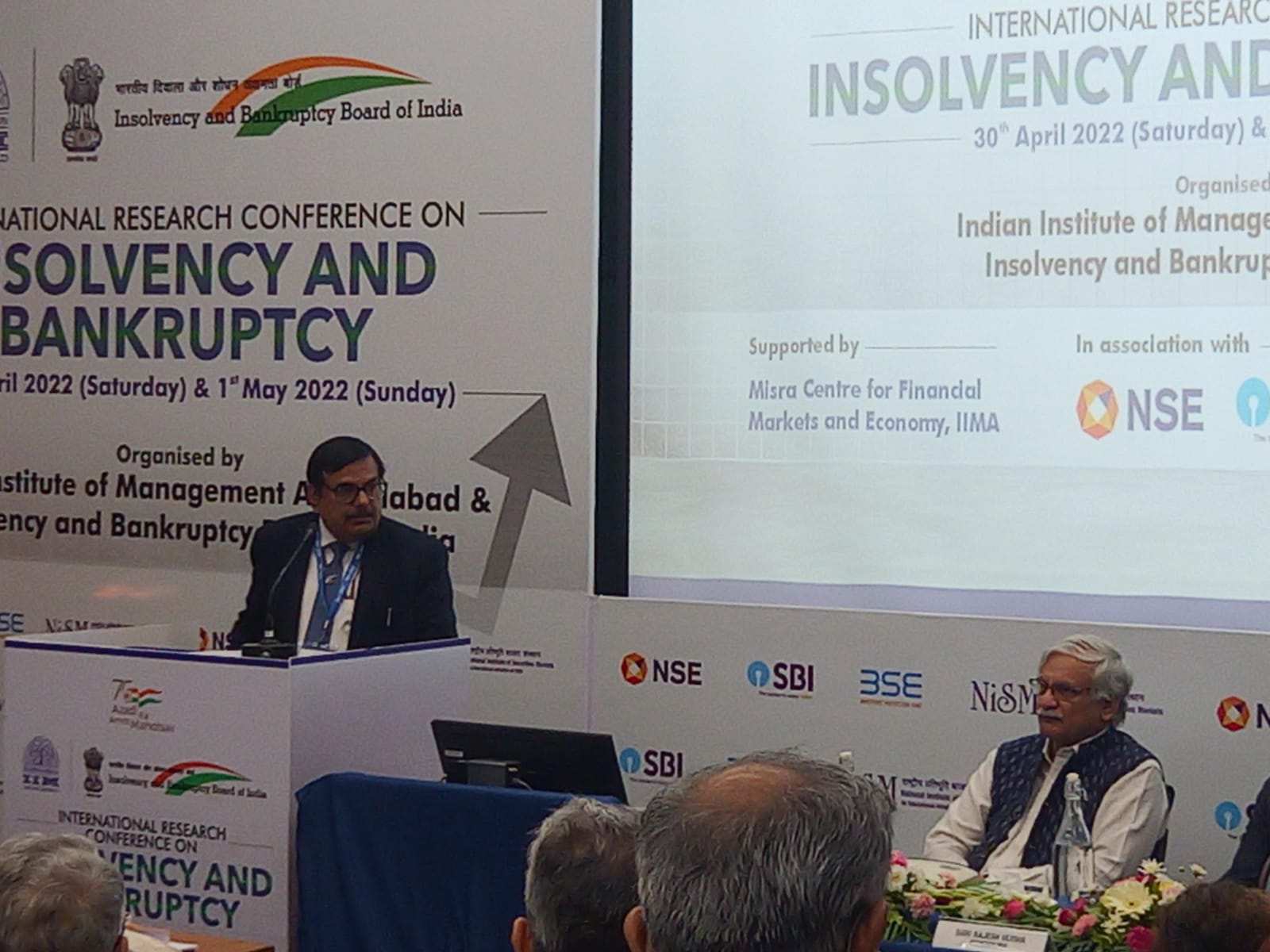
IBBI WTM, Sudhaker Shukla, while delivering the vote of thanks put it well: “You can have data without information, but you cannot have information without data. We hope the data provided by researchers will be of immense help to all of us.”
Interestingly, as of September 30, 2021, a total of 4,708 Corporate Insolvency Resolution Process (CIRPs) were initiated under the IBC. The realisable value of 421 cases which were resolved through a resolution plan on the same date, stood at Rs 2.55 lakh crore for all creditors, including financial creditors. The liquidation value of these companies was Rs 1.48 lakh crore.
Also Read: MICA’s Publishing Division Launches ‘Brand Magic’ – Book That Explores Ten Notable Gujarati Brands


